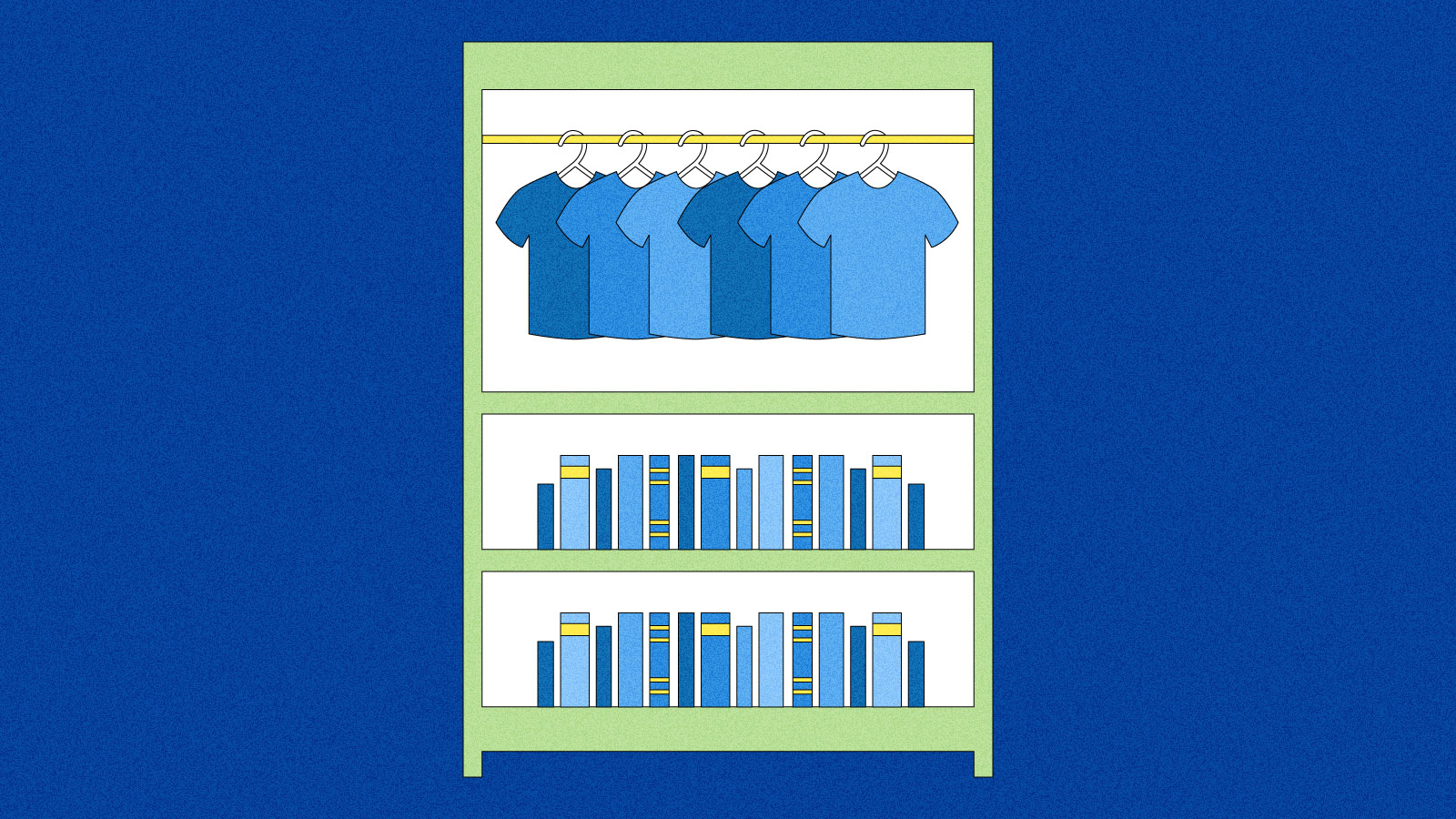The spotlight At a library in Dover, New Hampshire, earlier this year, the shelves of books and CDs typically available for lending were accompanied by something else — racks of clothes. Every Sunday and Monday from December through mid-January, community members could visit a lecture hall in the Dover Public Library to participate in the pilot of a new type of lending project: a clothing library. Visitors could check out up to five garments for two weeks at a time.
The collection focused on "occasion wear," the types of things people might buy for the purpose of wearing once: a holiday party dress, a wedding outfit, a ski trip ensemble. But more than displacing those types of purchases, and the resulting waste, the real idea behind the project was to facilitate a shift in behavior, said Stella Martinez McShera, the clothing library's creator. "How can we bridge the gap between people buying, whether that's new or secondhand, to borrowing?" I met McShera while reporting another newsletter story on the world's first degrowth master's program, run by a university in Barcelona.

She's a recent graduate of the online master's, and the clothing library was her thesis project. In that story, we explored what happens when the philosophical ideas of a new economic system meet the realities of the one we have. McShera's project is one example of what that looks like in practice.
McShera started her career in fashion. In 2000, she launched the first fashion incubator in the U.S.
But a.
















